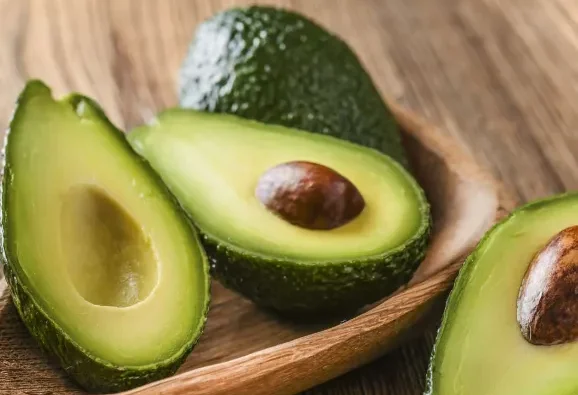Menopause can bring about several physical changes, including weight gain and concerns about bone health. Understanding how to manage these changes is crucial for maintaining overall well-being. In this post, we’ll discuss practical strategies, including nutrition and exercise tips, to help you combat weight gain and support your bones during menopause.
Understanding Menopause and Hormonal Changes
Menopause is a natural phase in a woman’s life, marked by the decline of reproductive hormones such as estrogen and progesterone. These hormonal shifts play a significant role in various bodily functions, from regulating menstruation to affecting bone density, muscle mass, and even brain health.
The hormonal changes during menopause also lead to an increase in hormones like luteinizing hormone (LH) and follicle-stimulating hormone (FSH), as estrogen levels drop. These fluctuations can cause a variety of symptoms, including weight gain and changes in body composition, making it essential to understand how to manage these transitions effectively.
Why Weight Gain Happens During Menopause
While many women expect to gain weight during menopause, the actual cause often lies in a decrease in energy expenditure rather than the hormonal changes themselves. Two primary factors contribute to this:
- Lower Activity Levels: Symptoms like fatigue, poor sleep, and fluctuating energy levels may lead to reduced physical activity, both during exercise and in daily activities (like walking or fidgeting). This decrease in movement means fewer calories burned throughout the day.
- Reduced Muscle Mass: As estrogen levels decline, muscle mass tends to decrease as well. Since muscle burns more calories than fat, a reduction in muscle mass lowers your metabolic rate, making it easier to gain weight.
How to Prevent Menopause Weight Gain
You can manage weight gain during menopause by focusing on nutrition and exercise. Here are some effective strategies:
1. Prioritize Protein Intake
One of the most effective ways to support muscle mass and manage weight during menopause is by ensuring adequate protein intake. Aim to consume 20-30 grams of protein in each meal. This helps stimulate muscle protein synthesis, which is vital for maintaining muscle tissue and controlling body composition. Spreading protein throughout the day in regular meals can help optimize muscle maintenance.
2. Strength Training is Key
Strength training becomes increasingly important as you navigate menopause. The decline in estrogen affects both bone and muscle health, but regular resistance training can help counter these effects.
- Muscle Maintenance and Growth: Strength training can help preserve and even build muscle mass, which boosts metabolism and aids in weight management.
- Bone Health: Strength training places beneficial stress on your bones, promoting bone density and reducing the risk of osteoporosis, a condition that becomes more common after menopause.
- Balance and Coordination: This type of training also enhances balance and coordination, reducing the risk of falls and injuries.
It’s recommended to perform strength training exercises 2-3 times a week to reap the full benefits.
3. Incorporate a Variety of Exercises
While strength training is essential, diversifying your workouts is also crucial for overall health. High-intensity interval training (HIIT), plyometrics, and other explosive movements can complement endurance activities like swimming, cycling, or running. This variety not only challenges your body but also improves your overall fitness and keeps your workouts interesting.
4. Allow for Recovery
As you age, recovery becomes even more important. Adequate rest, hydration, and nutrition are essential for muscle repair and to prevent overtraining. You may need to adjust your routine to include more rest days or lighter workouts compared to previous years.
Consistency is the key to managing weight and symptoms during menopause. Listening to your body and ensuring proper recovery will allow you to continue seeing positive results in your fitness journey.
Nutritional Strategies for Menopause Weight and Bone Health
1. Carbohydrates: Fueling Your Workouts and Balancing Hormones
Carbohydrates are essential for energy, especially during high-intensity exercise. They help fuel your muscles, replenish glycogen stores after a workout, and aid in muscle recovery. Additionally, carbohydrates play a role in balancing cortisol, the stress hormone that rises during both intense exercise and menopause. Keeping cortisol in check can help reduce unwanted weight gain, particularly around the abdomen.
For optimal energy and recovery, incorporate carb-rich meals or snacks before and after your workouts. Whole grains, legumes, and vegetables are excellent sources of healthy carbohydrates, providing steady energy release and maintaining stable blood sugar levels.
2. The Importance of Calcium and Vitamin D
As bone health becomes a concern during menopause, ensuring adequate intake of calcium and vitamin D is crucial:
- Calcium: This mineral is essential for maintaining bone density, and its importance increases during menopause when bone loss becomes more pronounced.
- Vitamin D: Vitamin D supports calcium absorption and helps prevent bone loss. It also plays a role in muscle function and immune health.
To support bone health, aim to consume calcium-rich foods like dairy products, leafy greens, and fortified plant-based milks. For vitamin D, include fatty fish such as salmon and mackerel, egg yolks, and mushrooms. Sunlight exposure is the best natural source of vitamin D, so try to spend time outdoors when possible.
3. Tailor Your Diet to Your Needs
Everyone’s dietary needs will vary based on activity levels, body composition, and individual goals. It’s important to adapt your nutrition to support your workouts and overall well-being. A registered dietitian or nutritionist can provide personalized recommendations to help optimize your diet during menopause.
Final Thoughts
Menopause is a time of significant change, but with the right nutrition and exercise strategies, you can manage weight gain and protect your bone health. Focus on strength training, maintaining muscle mass, eating a balanced diet with sufficient protein, and ensuring proper recovery. By adjusting your habits to meet your body’s evolving needs, you can navigate this transitional phase with confidence and maintain a healthy, active lifestyle.











